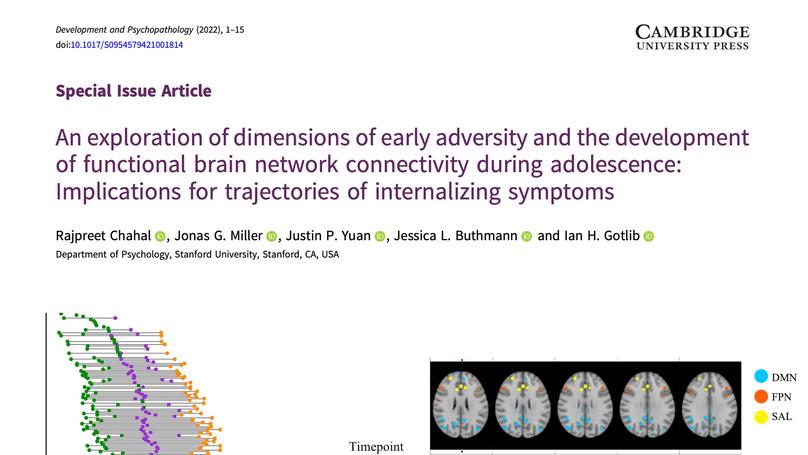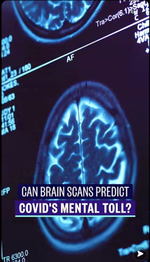Rajpreet Chahal, Ph.D.
Postdoctoral Researcher & Early Career Director of the Association for Clinical & Translational Science
Stanford University
Biography
I am a translational neuroscientist investigating neurodevelopmental pathways that contribute to psychopathology risk and resilience in adolescence. Specifically, I leverage multimodal neuroimaging methods to characterize long-term relations among experiential risk, brain development, and the onset/prognosis of internalizing symptoms during the pubertal phase. The goal of this translational research is to provide the foundation for future studies that target specific neural systems to develop more effective person-centered interventions.
Download my CV.
- Adolescent Psychopathology
- Developmental Neuroscience
- Multimodal Brain Imaging Methods
- Precision Mental Health
Postdoctoral Scholar, 2019-
Stanford University
Ph.D. in Human Development with Designated Emphasis in Translational Science, 2015-2019
University of California Davis
B.S. in Psychology with Emphasis in Biology, 2008-2012
University of California Davis
Skills
Experience
Grants & Awards
Recent Talks
Recent Publications
Featured Publications

Different dimensions of adversity may affect mental health through distinct neurobiological mechanisms, though current supporting evidence consists largely of cross-sectional associations between threat or deprivation and fronto-limbic circuitry. In this exploratory three-wave longitudinal study spanning ages 9–19 years, we examined the associations between experiences of unpredictability, threat, and deprivation with the development of functional connectivity within and between three brain networks implicated in psychopathology: the salience (SAL), default mode (DMN), and fronto-parietal (FPN) networks, and tested whether network trajectories moderated associations between adversity and changes in internalizing symptoms. Connectivity decreased with age on average; these changes differed by dimension of adversity. Whereas family-level deprivation was associated with lower initial levels and more stability across most networks, unpredictability was associated with stability only in SAL connectivity, and threat was associated with stability in FPN and DMN-SAL connectivity. In youth exposed to higher levels of any adversity, lower initial levels and more stability in connectivity were related to smaller increases in internalizing symptoms. Our findings suggest that whereas deprivation is associated with widespread neurodevelopmental differences in cognitive and emotion processing networks, unpredictability is related selectively to salience detection circuitry. Studies with wider developmental windows should examine whether these neurodevelopmental alterations are adaptive or serve to maintain internalizing symptoms.
Contact
- rchahal@stanford.edu
- 408 824 8264
- 450 Jane Stanford Way, Stanford, CA 94305
- DM Me





